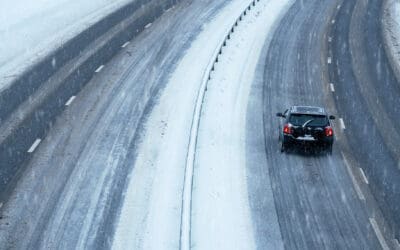Summer in Louisiana is made for adventure. Whether you’re cruising down the coast or heading across the state to visit family and friends, road trips are a cherished part of the season. But with the joys of travel come added risks—heavier traffic, sudden summer storms, and ever-changing road conditions.
At SWLA Injury Attorneys, we understand how quickly a fun trip can turn stressful when accidents happen. If you’re injured due to someone else’s negligence, our experienced team is ready to help you navigate the legal road ahead. Wherever your summer takes you, travel smart, stay alert, and know we’ve got your back.
1. Prepare Your Vehicle
Before you hit the road, give your vehicle a little extra TLC. Taking a few moments to check its condition can make all the difference between a smooth summer adventure and an unexpected roadside delay. Here’s a simple pre-trip checklist to keep you and your passengers safe:
- Tires: Make sure they’re properly inflated and have enough tread to handle Louisiana’s hot roads and potential rainstorms. Worn or underinflated tires are a leading cause of blowouts.
- Brakes: Test them out before you leave. If you notice any squealing, grinding, or sluggish response, have them inspected by a professional before leaving for your trip.
- Lights: Check that all headlights, brake lights, and turn signals are fully functional—especially if you’ll be driving at night or during heavy rain. Visibility is key.
- Fluids: Don’t forget to top off your oil, coolant, and windshield washer fluid. These keep your engine running smoothly and your windshield clear for safe driving.
A well-maintained car doesn’t just help prevent breakdowns—it helps protect everyone on the road around you. A little preparation goes a long way toward a worry-free summer journey.
2. Stay Alert and Avoid Distractions
Louisiana’s highways may be scenic, but long stretches of road can lead to driver fatigue. Staying alert behind the wheel is one of the most important things you can do to protect yourself and others. Here are a few smart habits to keep you focused and refreshed on your journey:
- Take Regular Breaks: Pull over every two hours or every 100 miles—even if you don’t feel tired. Stretch your legs, grab a snack, or just give yourself a break from the road.
- Avoid Distractions: Stay off your phone, avoid fiddling with the GPS while driving, and keep conversations light. A moment’s distraction can lead to a lifetime of regret.
- Share the Drive: If you’re traveling with someone else who can drive, take turns. Swapping drivers can make a big difference in maintaining focus and reducing fatigue.
Your full attention is your best defense on the road. Whether you’re heading to the next town or across the state, staying alert keeps your trip safe and smooth.
3. Be Weather-Wise
Summer in Louisiana brings more than heat—sudden storms are part of the season, too. Pop-up showers and intense downpours can happen quickly and with little warning. Staying weather-aware and adjusting your driving can make all the difference when skies turn dark:
- Check the Forecast: Before you head out and while you’re on the road, keep an eye on the weather. Apps, radio updates, or alerts can give you a heads-up on what’s ahead.
- Slow Down: Rain reduces traction. Lowering your speed helps prevent hydroplaning and gives you more control if roads become slick.
- Use Your Headlights: Visibility drops in a storm. Turning on your headlights (not just daytime running lights) helps you see better and makes sure others can see you.
- Pull Over if Needed: If rain is too heavy or visibility is severely limited, it’s okay to pause your trip. Find a safe, well-lit area and wait it out—safety comes first.
Louisiana’s weather can be unpredictable, but safety doesn’t have to be. A little extra caution during storms can help you avoid accidents and keep your summer travels on track.
4. Plan Your Route
Before you hit the road, take a few minutes to get familiar with your route.
- Use a Reliable GPS: Make sure your navigation app or GPS system is updated with current maps and traffic alerts. This helps you avoid road closures, detours, and unexpected delays.
- Plan Your Stops: Know where you’ll be able to refuel, grab a bite, or take a break. Marking rest stops or convenience stores along the way helps you stay refreshed and keeps you from running low on gas in rural areas.
- Avoid Peak Traffic: If possible, schedule your departure during off-peak hours. Early mornings or late evenings typically offer lighter traffic, which means an easier drive.
When you plan ahead, you’re not just mapping out your destination—you’re paving the way for a safer, more enjoyable trip. Check the maps, know your routes, and take to the road on your next summer adventure with confidence.
5. Understand Traffic Laws
Every state has its own set of driving laws, and knowing them can help you steer clear of traffic violations. Being aware of the rules of the road—wherever you are—keeps your trip stress-free.
- Seat Belts for Everyone: Louisiana law requires all passengers to buckle up. It’s a simple step that saves lives.
- Watch Those Speed Limits: Speed limits can shift quickly between rural highways, city streets, and construction zones. Pay attention to signs and adjust your speed accordingly.
- No Texting While Driving: It’s illegal to text while operating a vehicle in every state. Stay off your phone and keep your focus where it matters—on the road.
- Following local traffic laws isn’t just about avoiding fines—it’s about protecting yourself, your passengers, and everyone else you share the road with.
6. Know What to Do in Case of an Accident
Even with the best precautions, accidents can still happen. In those moments, knowing what to do can make a big difference for your safety, your recovery, and your legal rights. Here’s what to keep in mind if you find yourself in an accident:
- Put Safety First: If you’re able, move your vehicle to a safe location away from traffic. Turn on your hazard lights to alert other drivers.
- Call for Help: Contact emergency services immediately to report the accident. If anyone is injured—even slightly—request medical assistance on the scene.
- Document Everything: If you can, take clear photos of the vehicles, any visible injuries, road conditions, and nearby signage. If there are witnesses, ask for their contact information.
- Seek Medical Attention: Injuries aren’t always obvious right away, so it’s important to seek medical attention as soon as possible after an accident, even for what seems like a minor ache.
- Talk to a Lawyer First: Before you speak with insurance adjusters, consult your personal injury attorney. They can help protect your rights, advise you, and make sure you don’t settle for less than you deserve.
At SWLA Injury Attorneys, we know how confusing and stressful the aftermath of an accident can be. Our knowledgeable team is here to walk you through every step of the legal process with clarity, compassion, and fierce advocacy—so you’re never facing it alone.
Contact SWLA Injury Attorneys
If you or someone you love has been injured in a road accident, you don’t have to face the aftermath alone. The decisions you make in the hours and days following a crash can have a lasting impact, and having the right legal team on your side matters.
At SWLA Injury Attorneys, we’re serving Lake Charles and South Louisiana with integrity, compassion, and expertise. We offer free consultations and are here to listen, answer your questions, and fight for the justice you deserve. Let us help you move forward—contact us today and take the first step toward recovery.











